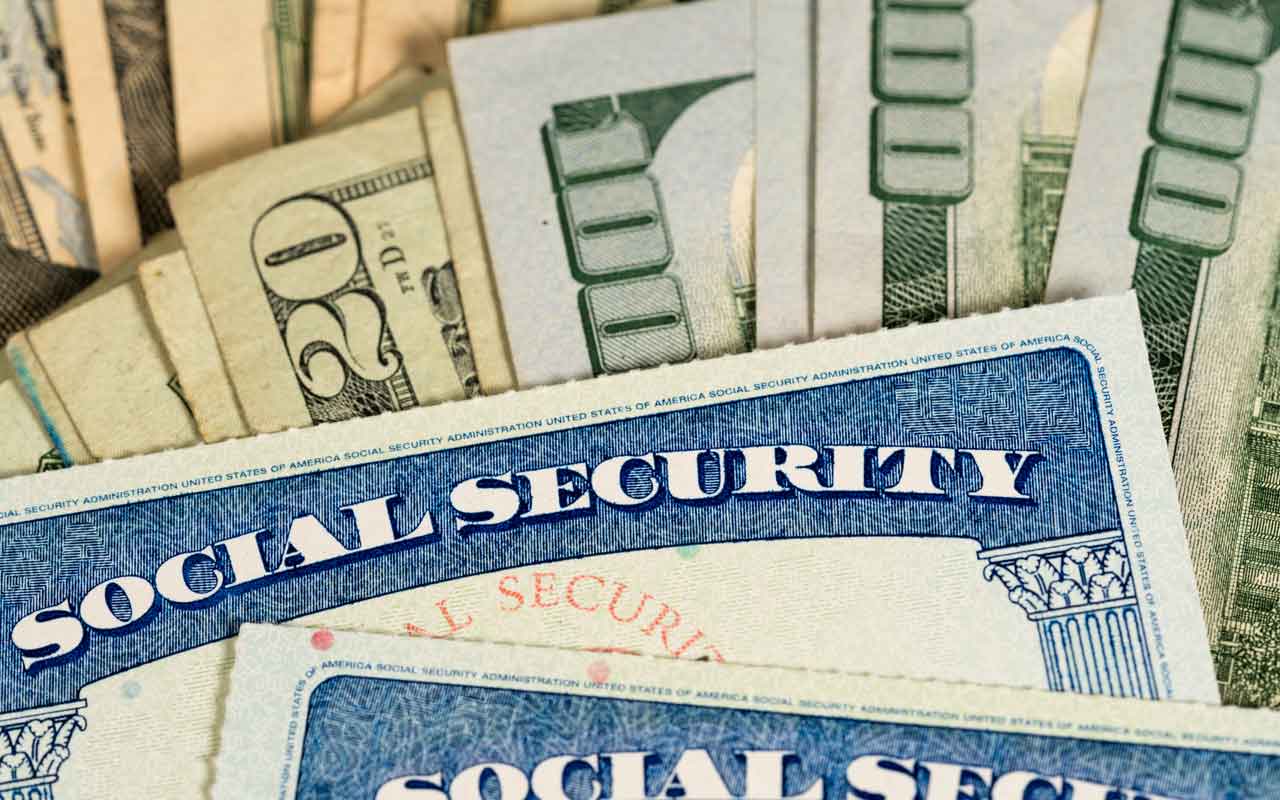5 Ways Retirees Can Play Defense With Retirement Portfolios
All this market volatility might unnerve investors of any age—but particularly those just entering retirement.


Profit and prosper with the best of Kiplinger's advice on investing, taxes, retirement, personal finance and much more. Delivered daily. Enter your email in the box and click Sign Me Up.
You are now subscribed
Your newsletter sign-up was successful
Want to add more newsletters?

Delivered daily
Kiplinger Today
Profit and prosper with the best of Kiplinger's advice on investing, taxes, retirement, personal finance and much more delivered daily. Smart money moves start here.

Sent five days a week
Kiplinger A Step Ahead
Get practical help to make better financial decisions in your everyday life, from spending to savings on top deals.

Delivered daily
Kiplinger Closing Bell
Get today's biggest financial and investing headlines delivered to your inbox every day the U.S. stock market is open.

Sent twice a week
Kiplinger Adviser Intel
Financial pros across the country share best practices and fresh tactics to preserve and grow your wealth.

Delivered weekly
Kiplinger Tax Tips
Trim your federal and state tax bills with practical tax-planning and tax-cutting strategies.

Sent twice a week
Kiplinger Retirement Tips
Your twice-a-week guide to planning and enjoying a financially secure and richly rewarding retirement

Sent bimonthly.
Kiplinger Adviser Angle
Insights for advisers, wealth managers and other financial professionals.

Sent twice a week
Kiplinger Investing Weekly
Your twice-a-week roundup of promising stocks, funds, companies and industries you should consider, ones you should avoid, and why.

Sent weekly for six weeks
Kiplinger Invest for Retirement
Your step-by-step six-part series on how to invest for retirement, from devising a successful strategy to exactly which investments to choose.
All this market volatility might unnerve investors of any age—but particularly those just entering retirement. If new retirees get socked by steep market declines, they may be forced to pull spending money from shrinking portfolios—locking in losses and slashing the odds that their money will last a lifetime.
Combine that with retirees’ reluctance to spend from their portfolios even in the best of times, and it’s easy to see the financial anxieties compounding for those just entering retirement. Many retirees anchor to their portfolio value at retirement “and get really nervous when that balance goes down,” says Judith Ward, senior financial planner at T. Rowe Price.
While market swings may leave you feeling powerless, “times of uncertainty and volatility remind us to focus on the things we can control,” Ward says, such as your investment mix and spending rate. Here are five ways to maintain control of your retirement security, no matter what the markets throw at you.

Work Longer
This won’t work for everyone: Health problems or corporate downsizing often force people into retirement earlier than expected. But if you’re able to extend your working years, you’ll do your portfolio several favors. Your money has more time to grow; the additional income can help you delay claiming Social Security, giving you a higher benefit down the road; and you reduce the number of retirement years that your nest egg must support. If you can work even part-time—perhaps just enough so that wages, rather than portfolio withdrawals, can cover your essential expenses—“there’s a lot of power in that,” says retirement researcher and actuary Joe Tomlinson.

Add Guaranteed Income
When you have enough guaranteed income to cover your basic living expenses, you can watch the market gyrate without breaking a sweat. Your first step: Maximize your Social Security benefit. Consider online services that offer personalized claiming strategies. Social Security Solutions, for example, offers advice starting at $19.95. “Social Security is guaranteed income that’s inflation adjusted,” Ward says. “You can’t get better than that.” (Read Time Claims to Maximize Social Security Benefits.)
If Social Security, pensions and other guaranteed income sources don’t cover your basic bills, consider a single-premium immediate annuity to fill in the gap. Compare annuity quotes at ImmediateAnnuities.com.
QUIZ: How Well Do You Really Understand Annuities?

Adjust Spending
If guaranteed income covers your essential expenses, you have more flexibility to vary the portfolio withdrawals that will cover your discretionary spending. Rather than withdrawing the same inflation-adjusted dollar amount year after year, which can cause nail-biting portfolio declines when markets drop, consider an approach that lets withdrawals vary with your investment performance. One strategy: Use the required minimum distribution listed for your age in the IRS table.


Trim Your Tax Bill
The bright side of market volatility: It may open up tax-saving opportunities. If you have losing holdings in taxable accounts, consider harvesting those losses to offset gains elsewhere, says Jim Holtzman, an adviser at Legend Financial Advisors. You might also consider a Roth conversion. Lower investment values in a traditional IRA would mean a lower tax bill if you were to convert that account to a Roth. Just remember this is a one-way street: You can no longer undo a Roth conversion.
Profit and prosper with the best of Kiplinger's advice on investing, taxes, retirement, personal finance and much more. Delivered daily. Enter your email in the box and click Sign Me Up.

-
 Nasdaq Leads a Rocky Risk-On Rally: Stock Market Today
Nasdaq Leads a Rocky Risk-On Rally: Stock Market TodayAnother worrying bout of late-session weakness couldn't take down the main equity indexes on Wednesday.
-
 Quiz: Do You Know How to Avoid the "Medigap Trap?"
Quiz: Do You Know How to Avoid the "Medigap Trap?"Quiz Test your basic knowledge of the "Medigap Trap" in our quick quiz.
-
 5 Top Tax-Efficient Mutual Funds for Smarter Investing
5 Top Tax-Efficient Mutual Funds for Smarter InvestingMutual funds are many things, but "tax-friendly" usually isn't one of them. These are the exceptions.
-
 States That Tax Social Security Benefits in 2026
States That Tax Social Security Benefits in 2026Retirement Tax Not all retirees who live in states that tax Social Security benefits have to pay state income taxes. Will your benefits be taxed?
-
 What to Do With Your Tax Refund: 6 Ways to Bring Growth
What to Do With Your Tax Refund: 6 Ways to Bring GrowthUse your 2024 tax refund to boost short-term or long-term financial goals by putting it in one of these six places.
-
 What Does Medicare Not Cover? Eight Things You Should Know
What Does Medicare Not Cover? Eight Things You Should KnowMedicare Part A and Part B leave gaps in your healthcare coverage. But Medicare Advantage has problems, too.
-
 12 Great Places to Retire in the Midwest
12 Great Places to Retire in the MidwestPlaces to live Here are our retirement picks in the 12 midwestern states.
-
 15 Cheapest Small Towns to Live In
15 Cheapest Small Towns to Live InThe cheapest small towns might not be for everyone, but their charms can make them the best places to live for plenty of folks.
-
 15 Reasons You'll Regret an RV in Retirement
15 Reasons You'll Regret an RV in RetirementMaking Your Money Last Here's why you might regret an RV in retirement. RV-savvy retirees talk about the downsides of spending retirement in a motorhome, travel trailer, fifth wheel, or other recreational vehicle.
-
 The 24 Cheapest Places To Retire in the US
The 24 Cheapest Places To Retire in the USWhen you're trying to balance a fixed income with an enjoyable retirement, the cost of living is a crucial factor to consider. Is your city the best?
-
 The Six Best Places to Retire in New England
The Six Best Places to Retire in New Englandplaces to live Thinking about a move to New England for retirement? Here are the best places to land for quality of life, affordability and other criteria.
